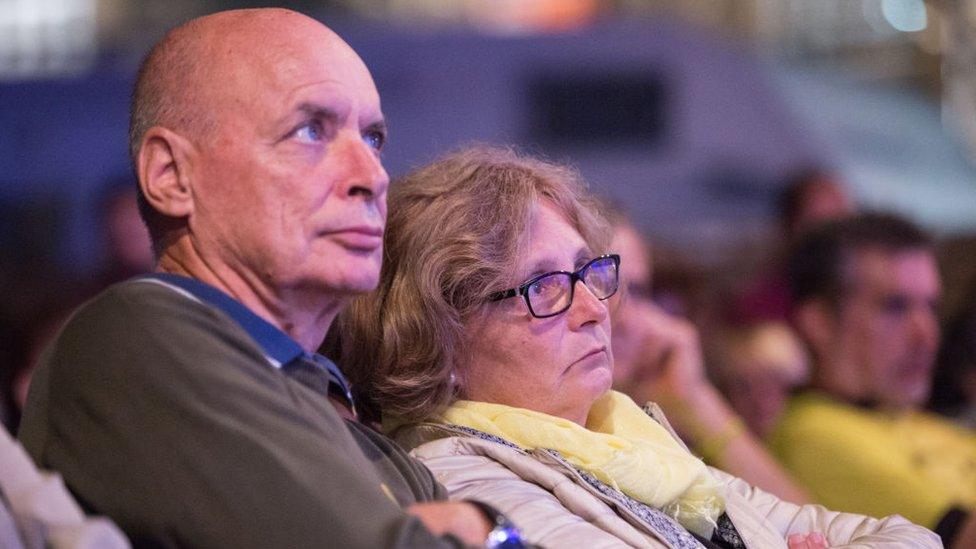Regeni murder: Trial of Egyptians for Italian student's murder suspended
- Published

Giulio Regeni was studying for a doctorate at Cambridge when he was murdered
A judge has suspended a trial of four Egyptians accused of killing an Italian student amid concerns they do not know they have been charged.
Giulio Regeni's mutilated body was found in a ditch near Cairo in February 2016.
Four Egyptian security forces members were due to go on trial in absentia in Rome, accused of his kidnap, torture and killing.
But a judge has now halted the trial, bitterly disappointing his family.
After hours of deliberation Judge Antonella Capri ruled in favour of defence lawyers for the men who argued the proceedings would be void without proof the four were aware of the case against them.
It means the case will now go back to a preliminary court. This will then decide whether to try to find the accused.
The Egyptian authorities reject the Italian allegations about Regeni's killing. Prosecutors accuse them of withholding the accused men's whereabouts and hindering the investigation.
Regeni's parents and sister were at the trial. Italy's government is a civil party in the case - a show of support.
Quoted by Reuters news agency, the family's lawyer Alessandra Ballerini said the decision was "a setback, but we are not going to give up."
"We demand that those who tortured and killed Giulio do not go unpunished," she reportedly said.
The 28-year-old student was abducted on 25 January 2016 while carrying out research for his PhD at Cambridge on Egypt's independent trade unions. A week later his body was discovered on the road to Alexandria.
The BBC's Mark Lowen in Rome reports that the Egyptian authorities constantly hindered the Italian prosecution, inventing wild stories behind the murder: a failed drug deal, a botched robbery, even a gay crime of passion.
But Italian prosecutors concluded that the Egyptian national security agency was behind the murder.
They said Regeni had been under surveillance for weeks and reported as a spy by a Cairo street trade unionist. Before he died he was kicked, punched, cut, burned with red-hot objects and beaten with sticks, Rome prosecutors said.
The four absent defendants - Gen Tariq Sabir, Col Usham Helmi, Col Athar Kamel Mohamed Ibrahim and Maj Magdi Ibrahim Abdelal Sharif - all deny kidnapping Regeni.
Maj Sharif rejects a further allegation of conspiring to inflict aggravated injuries and murder. He allegedly ordered informants to spy on Regeni, who was then arrested at a metro station and tortured for several days.

Giulio Regeni's parents, Claudio and Paola, hope to learn the truth from the Rome trial
The murder sparked widespread outrage and a crisis in relations between Italy and Egypt, with the Italian ambassador recalled.
Since then Egypt has dropped its own investigation, with top prosecutor Hamada al-Sawi citing "insufficient evidence". Although Egyptian authorities admitted Regeni had been monitored and betrayed by people he had met, they refused to provide Italy with the defendants' home details.
Italy's ambassador is back in Cairo and President Abdul Fattah al-Sisi's government appears to have faced no blowback at all, Mark Lowen reports.
The murdered student's parents, Claudio Regeni and Paola Deffendi, have accused the Italian government of betrayal, by returning to business as normal with Egypt and selling two frigates as part of a large arms deal.
Meanwhile, political opponents continue to disappear. In a report last year Egypt's Commission for Rights and Freedoms said it had documented more than 2,700 enforced disappearances since 2015.
Find out more about Egypt's disappeared:
Egypt's disappeared (Video from 2016)
Related topics
- Published25 May 2021

- Published25 January 2021
